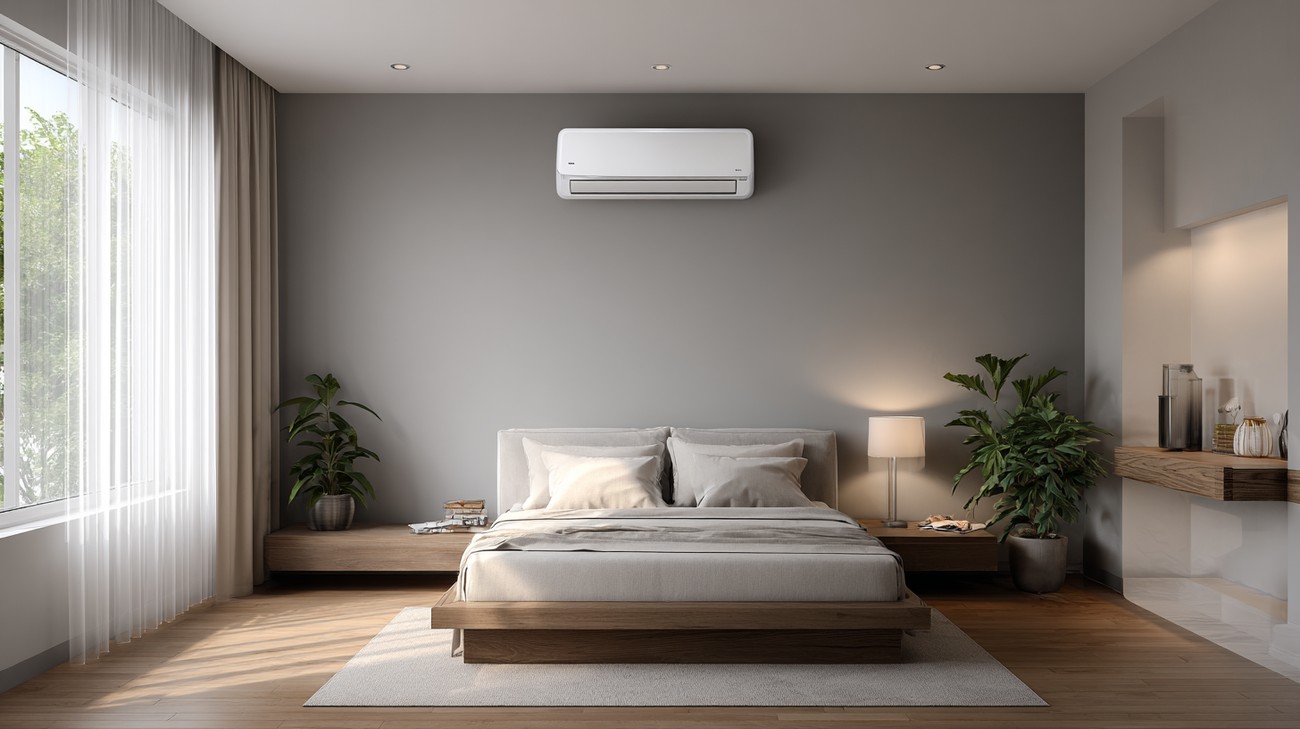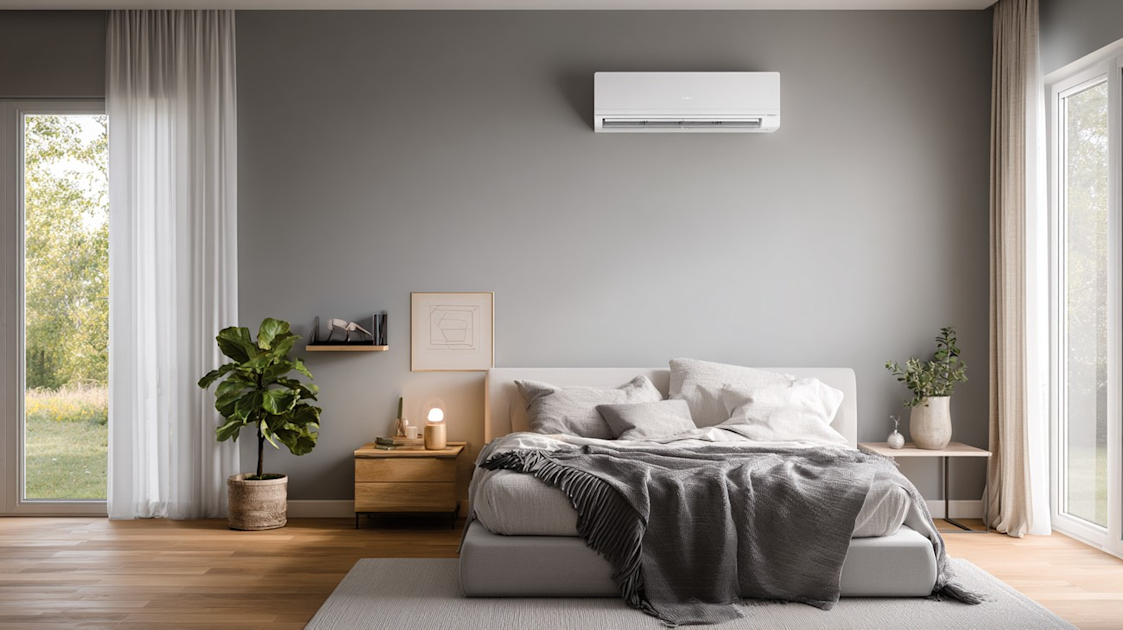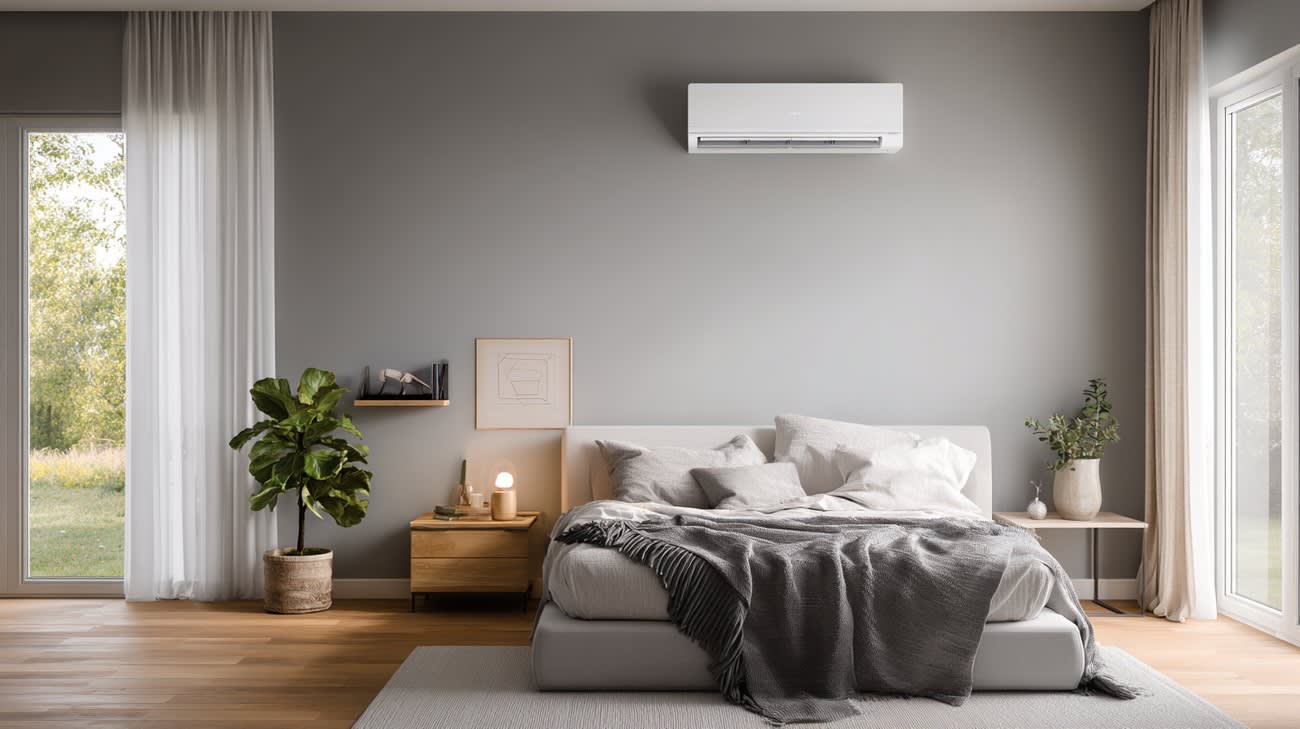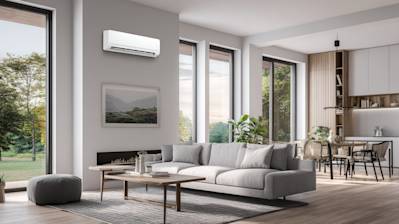In today’s world, having a good night's sleep is essential, and having a comfortable bedroom can greatly enhance the quality of your sleep. One major factor in achieving this comfort is having a properly installed and efficient air conditioner. In this comprehensive guide, we'll delve into everything you need to know about using air conditioning in your bedroom, including types, benefits, maintenance, and tips for maximizing efficiency.
Understanding Air Conditioning Types
When it comes to selecting an air conditioner for your bedroom, understanding the different types can help you make an informed decision:
Window Air Conditioners
Window units are perhaps the most widely recognized type. They are installed in a window or a wall opening and are an affordable option for many households.
Split Air Conditioners
Split systems consist of two main parts: an indoor and an outdoor unit. These are known for their efficiency and quieter operation compared to window units. They are ideal for those looking for a discreet installation with powerful cooling.
Portable Air Conditioners
Portable air conditioners provide flexibility and mobility. They stand on the floor and are easy to move from room to room, making them perfect for renters or those who want to avoid permanent installation.
Ductless Mini-Split Systems
These systems are similar to split air conditioners but do not require ductwork. They're an excellent choice for older homes without existing ductwork, offering both efficiency and convenience.
Advantages of Bedroom Air Conditioning
Integrating air conditioning into your bedroom design brings numerous benefits:
- Enhanced Comfort: Regulated temperatures ensure a comfortable sleeping environment all year round.
- Improved Air Quality: Many modern AC units purify and filter air, removing allergens and pollutants.
- Sound Sleep: Consistent cooling prevents overheating, minimizing night sweats and restless sleep.
- Humidity Control: Air conditioners reduce humidity levels, preventing the growth of mold and dust mites.
Tips for Efficient Bedroom Air Conditioning
To maximize the efficiency of your bedroom air conditioning system, consider the following tips:
Choose the Right Size: An AC that is too small will struggle to cool the room, while one that's too large will cycle on and off too frequently. Measure your room and consult with a professional to find the appropriate size.
Regular Maintenance: Routine cleaning of filters and coils ensures efficient operation and extends the lifespan of the unit.
Optimal Settings for Sleep: Set your AC to maintain a steady temperature between 60 and 67 degrees Fahrenheit, which is considered optimal for sleep.
Use Timers and Smart Thermostats: These allow you to program your AC to turn off after you fall asleep or to start just before you return home.
Installing a Bedroom Air Conditioner
The installation process can vary based on the type of unit chosen:
Window Unit Installation
- Select the Right Window: Ensure your chosen window can support the weight of the air conditioner.
- Secure the Unit: Install brackets as per the manufacturer’s instructions, ensuring the unit sits securely within the window frame.
- Seal Gaps: Use foam strips or weather sealant to prevent air leaks.
Split System Installation
- Consult a Professional: This type of system typically requires professional installation to manage the indoor and outdoor components.
- Plan the Layout: Decide on the placement for both the indoor and outdoor units to ensure aesthetics and efficiency.
Maintaining Your Bedroom Air Conditioner
Keeping your AC in top condition involves a few straightforward tasks:
- Clean or replace filters every one to three months, depending on usage and type.
- Clear debris from around the outdoor unit to ensure unobstructed airflow.
- Check for any unusual noises or vibrations that may indicate a mechanical issue.
- Ensure all drainage lines are clear to prevent water damage or mold growth.
Maximizing Comfort with Air Conditioning Accessories
To complement your air conditioning, consider these accessories:
- Ceiling Fans: These can enhance airflow, allowing the AC to work more efficiently.
- Insulating Curtains: Thermal-lined curtains can help maintain temperatures by preventing cold air from escaping.
- Dehumidifiers: In particularly humid climates, these can work alongside the AC system to maintain optimal humidity levels.

Frequently Asked Questions Bedroom AC
What type of aircon is best suited for a bedroom?
Choosing the right type of aircon for your bedroom depends on several factors, such as room size, budget, and personal preferences. Split systems are often recommended for bedrooms due to their efficiency and quiet operation, making them ideal for nighttime use. Portable air conditioners offer flexibility and convenience if you wish to move the unit between rooms and don't want to invest in more permanent solutions. Window air conditioners can be a cost-effective choice for smaller bedrooms, and they often come with features like timers and energy-saving modes to enhance their functionality.
Can installing air conditioning in a bedroom increase energy bills significantly?
Installing air conditioning in a bedroom can raise your energy bills, but the increase depends on several factors, such as the air conditioner's energy efficiency, usage patterns, and the bedroom's insulation. Modern air conditioning units often come with energy-efficient features like adjustable thermostats, sleep modes, and energy-saving settings, which can help minimize running costs. It's also crucial to choose an aircon unit with the appropriate BTU (British Thermal Unit) rating for your bedroom size to ensure efficient energy use. Proper installation and regular maintenance can further optimize energy consumption and keep your electricity bills in check.
Is it unhealthy to use air conditioning while sleeping in a bedroom?
Using air conditioning in a bedroom can be safe and healthy if managed correctly. It's important to set the temperature to a comfortable level and ensure the unit is well-maintained to avoid potential health issues like dry skin or respiratory discomfort. Running the aircon on a moderate cool setting can prevent the room from becoming too cold and help maintain optimal humidity levels. Cleaning and changing the air filter regularly prevents the circulation of dust and allergens, enhancing air quality and health safety while you sleep.
How can I minimize noise from an aircon in my bedroom?
To minimize noise from an air conditioner in your bedroom, consider investing in a unit specifically designed for quiet operation. Many modern aircons come with noise-reduction technology or a ‘silent mode’ that operates at a lower decibel level. For existing units, ensuring that the aircon is properly installed can significantly reduce vibrations and noise. Regular maintenance, like tightening screws and cleaning filters, also plays a crucial role in reducing noise output. If noise issues persist, try placing the unit away from the bed or adding sound-absorbing materials like rugs and curtains to the room.
What maintenance does an aircon unit require in a bedroom?
Regular maintenance of an aircon unit in your bedroom can ensure optimal performance and longevity. Key maintenance tasks include cleaning or replacing the air filter every 1-3 months to ensure efficient airflow and prevent dust buildup. Inspecting the unit for any signs of wear, such as leaks or unusual noises, and ensuring fins are straight and clear of debris, can help preempt any major issues. Since proper drainage is vital, check and clean the condensate drain to prevent clogs and potential water damage. Hiring a professional for an annual check-up can also ensure your aircon is running efficiently and safely.
How do I choose the right aircon size for a bedroom?
Selecting the right size aircon for your bedroom depends on the room's square footage, ceiling height, insulation quality, and the number of occupants typically present. Air conditioners are rated by BTU (British Thermal Units), which measure cooling capacity, and selecting a unit with the appropriate BTU rating is crucial to ensure efficient cooling without wasting energy. Generally, a small room around 100-300 square feet may require an 5,000-6,000 BTU unit, while larger bedrooms might need a higher capacity. Consulting with an HVAC professional can help you accurately assess your needs and choose the right aircon size.
Can I use a smart thermostat with my bedroom aircon?
Yes, integrating a smart thermostat with your bedroom aircon can enhance comfort and energy efficiency. Smart thermostats offer features that allow you to control your air conditioning remotely, schedule cooling periods around your lifestyle, and even adjust settings based on your sleep patterns. Many smart thermostats also learn your preferences over time, optimizing the climate in your bedroom for both comfort and cost savings. This high-level control and automation can ensure your bedroom remains comfortable whenever you're ready to rest.
How can I improve air circulation when using an air conditioner in my bedroom?
Improving air circulation in a bedroom with air conditioning can be achieved through several strategies. Position the air conditioner to face the center of the room for even cooling distribution. Use ceiling or portable fans to help circulate the cooled air, reducing the workload on the aircon unit and enhancing overall air flow. Ensure that doors and windows remain closed when the air conditioner is running. Additionally, keeping interior doors open or using door vents can facilitate better air movement throughout the house, maintaining a consistent temperature and air quality in your bedroom.

Weighing Your Options: aircon in bedroom
Ah, the age-old debate of whether or not to install air conditioning in the bedroom. It's a choice that can make the difference between blissful slumber and tossing and turning through sweaty nights. Let's dive into the nitty-gritty details of having an aircon in the bedroom, discussing the perks and the potential drawbacks.
Pros
Enhanced Sleep Quality
A consistent temperature can be the secret sauce for a good night's sleep. Air conditioning can help maintain a comfortable environment that's conducive to uninterrupted snoozing. No more waking up drenched in sweat or flipping the pillow to the cooler side!
Allergy Relief
If you're someone who battles with allergies, air conditioning can be a godsend. It filters out outdoor allergens like pollen, dust mites, and other irritants, providing cleaner indoor air. This might mean fewer sneezes and stuffy noses, especially during allergy season.
Humidity Control
Life in a humid climate can be, well, sticky. Air conditioners help regulate indoor humidity, creating a less muggy and more pleasant atmosphere. This prevents mold growth and discourages those pesky dust mites that thrive in moisture.
White Noise Effect
Some people find the gentle hum of an aircon to be quite soothing. It can act as a white noise machine, drowning out environmental sounds like traffic or noisy neighbors, which could otherwise disrupt your sleep.
Cons
Initial and Upkeep Costs
Installing an air conditioning unit isn't just a one-time expense. There's the initial purchase cost and potentially higher electricity bills to consider, especially during those heatwaves. Regular maintenance, like filter changes and system checks, adds another layer to the expense sheet.
Potential for Dry Air
While air conditioning units can control humidity, they might take it too far, leading to overly dry air. This could result in dry skin, itchy eyes, or a scratchy throat. A humidifier might be needed to balance things out, which is another gadget to find space for.
Environmental Impact
Running an aircon unit isn't exactly the most eco-friendly activity. It increases your carbon footprint and puts a strain on the power grid. If you're an environmentally-conscious consumer, this could weigh heavily on your decision.
Noise Levels
What one person finds soothing, another might find distracting. While some units operate quietly, others can be clunky and loud—a potential issue if you're a light sleeper sensitive to noises.
Space Consideration
Adding an air conditioning unit to your bedroom can be a bit of a space hog. Window units can block natural light, while floor units take up valuable real estate. This could be a hindrance if your bedroom isn't particularly spacious.
Each of these factors can significantly sway your decision in one direction or the other, depending largely on your personal preferences and priorities. Whether it's the promise of better sleep or the obligation of keeping up with costs, the decision to install an aircon in your bedroom is uniquely yours to make.









